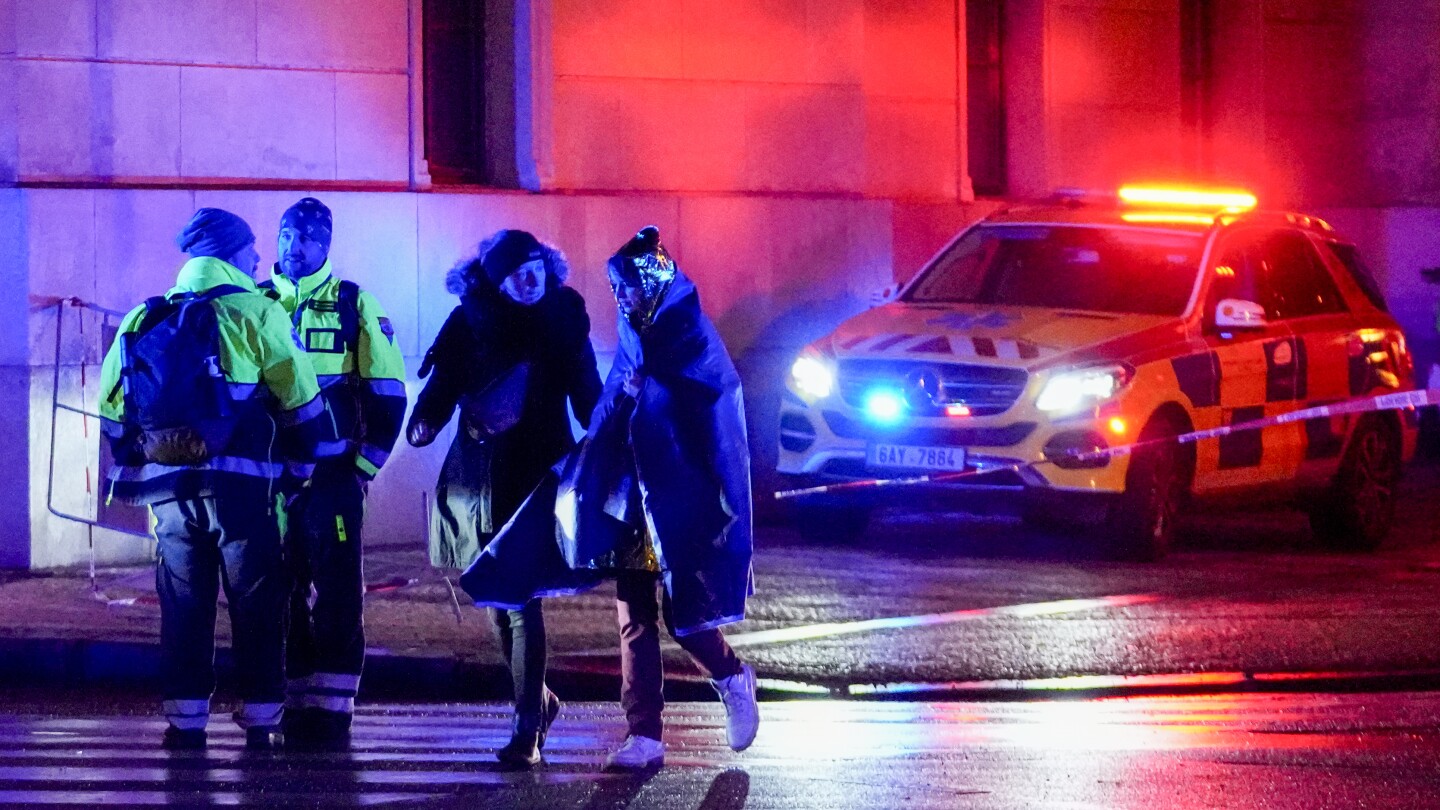PRAGUE (AP) — Czech politicians tend to boast that their country is one of the safest in the world from gun violence. But the worst mass killing in the nation’s history this week — along with other shootings over the last decade — suggest that might not be true.
At the Faculty of Arts department at Charles University, where 14 people were killed and dozens wounded Thursday, the shooter was an excellent student, police said. But the 24-year-old also had a proclivity for firearms, with a license to own eight guns, including two long guns, police said.
Authorities said the lone assailant had no criminal record and therefore did not attract the attention of authorities.
“This kind of attack is really hard to prevent,” Interior Minister Vit Rakusan said Friday.
The shooter, who killed himself as police closed in, is believed to have been Czech. Police chief Tomas Vondrasek said officers found an arsenal of weapons with a lot of ammunition that the suspect had to carry unnoticed to the university building before opening fire.
The Czech Republic can hardly be compared to the United States but its gun legislation is considered liberal in Europe after replacing restrictions under the totalitarian communist regime that was ousted in the 1989 Velvet Revolution.
In 2021, the Parliament amended the Constitution’s Charter of Fundamental Rights and Freedoms to give people a right to defend themselves or others with a gun. That move, adopted after more than 100,000 people signed a petition in support, means that the right cannot be limited by a separate law.
In the country of 10.9 million, 314,000 people had a gun license by the end of last year and owned almost a million various weapons.
To get a license, people need to be a Czech resident, be older than 21 (that doesn’t apply for sports and hunting), be in good health, mentally responsible, reliable and without a criminal record. Written and practical tests, including shooting at a target, are also part of the procedure.
But once a person meets all the requirements, the authorities who keep the records don’t need to inform police about the numbers of guns people have, Ales Strach, a senior Prague police officer said Friday.
When asked at a news conference how it’s possible the suspect had such a number of weapons, Tomas Kubik, a deputy police chief said: “We will have to figure out if it’s a result of a flaw in the system or human error.”
Meanwhile, the country’s gun law might be tightened soon, independently of what happened on Thursday.
The Parliament has been debating an amendment to the gun and ammunition law that makes it possible for authorities to seize a weapon from private owners for a preventive reason. It includes a requirement for businesses to report to police suspicious purchases of guns and ammunition and gives doctor access to databases to find out if their patients are gun owners.
Rakusan, the interior minister, called it “a sad paradox” but refrained from suggesting the proposed changes would have prevented Thursday’s killing.
“If someone is determined to do it, even the best possible legislation could not prevent it,” he said.
Police said the Charles University assailant is suspected in a separate case of killing a father and his 2-month-old daughter on the eastern edge of Prague on Dec. 15. He is also believed to have killed his own father before arriving at the university.
Thursday’s mass killing was not the Czech Republic’s only such shooting over the past decade. A man opened fire during lunchtime in a restaurant in the southeastern town of Uhersky Brod in 2015, killing eight before he fatally shot himself.
Four years later, another gunman fatally shot six people and wounded three others at a hospital in the eastern city of Ostrava before killing himself.
“I firmly believe that such excesses are extraordinary and won’t repeat,” Prague mayor Bohuslav Svoboda told the Czech public television on Friday.

